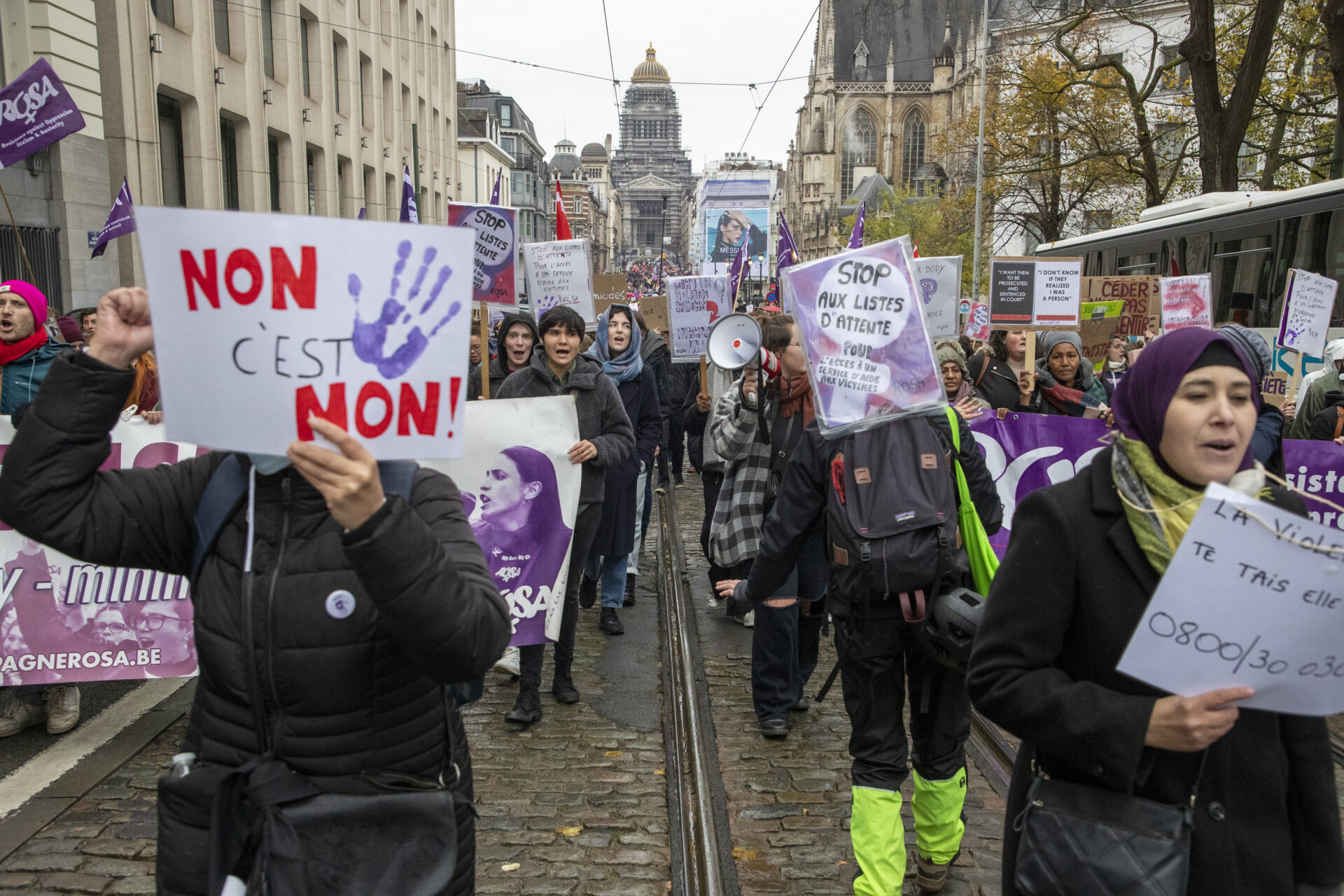Nearly one in three women in Belgium (31.3%) have been victims of partner violence at some point in their lives, according to a report by the country's three regional statistics agencies.
The Belgian report is part of the larger 'EU survey on gender-based violence' (EU GBV) carried out in 23 countries, to better map violence against women. In Belgium, nearly 5,500 people aged between 18 and 74 took part – the majority of them women.
Partner violence is an "under-reported problem," said Federal Justice Minister Paul Van Tigchelt on social media. "With the new Penal Code, we tightened the punishment measures. Additionally, the new Care Centres after Sexual Violence are crucial to adequately accommodate victims. Fighting intra-family and sexual violence must remain a priority for the justice system."
The majority of the female victims of partner violence indicated that they had been victims of psychological violence. The most common forms were humiliation and insults. However, 17.2% of victims also reported that their partner had locked them up or forbidden them to go to work, the survey found – a figure that amounts to about 5.2% of the general female population in Belgium.
The violence often does not stop either: approximately four in ten of the victims of psychological violence reported that it happened "often" or "all the time."
Violence in different forms
Women who are victims of partner violence often experience multiple types of violence, the survey showed. For 93% of female victims of physical partner violence, for example, the violence was accompanied by psychological violence. 69% of women who were victims of sexual violence also experienced both physical and psychological violence.
Of all female respondents, one in 13 had already been the victim of sexual violence by a partner. The report estimates that approximately 296,000 women in Belgium have experienced sexual violence by a partner at some point in their lives.
When it comes to violence outside an intimate relationship, about one in five women say they have been victims at least once. Some 11.5% of Belgian women indicated they had experienced some form of sexual violence at least once in their lives; 5.4% said they have been victims of (attempted) rape.
In most cases of violence outside a relationship, the victim knows the perpetrator – a friend, family member or a colleague. In cases of physical violence, about 80% of women said they knew at least one of the perpetrators.

National demonstration against violence against women organised by the Mirabal platform in Brussels in November 2022. Credit: Belga / Nicolas Maeterlinck
The report also underlined that women in socially vulnerable positions are more likely to be victims of psychological, physical or sexual violence by a partner.
74% of women in the survey who reported being unable to afford an unexpected expense of €300, were in very poor health and unemployed for health reasons had been victims of psychological partner violence at some point in their lives.
Among women who work and who indicated they would be financially able to pay an unexpected expense and are in good health, the percentage is three times lower: at 24.8%.
Large regional differences
The same trend is also seen in physical and sexual violence. For example, almost one in four women with a disability or a long-term health problem said they have been victims of sexual violence by a partner. This rate is four times higher than among working women.
The report did not show a causal link between those socio-economic factors and the risk of violence. This means that a woman's financial situation, health or work situation does not directly make her more or less likely to be a victim, but they are factors that have made certain categories of women more vulnerable to violence than others.
Related News
- Humiliating and controlling: Campaign highlights other forms of domestic violence
- Belgium is a 'defender of gender equality', but still a long way to go
- 'App-Elles': App to combat street harassment comes to Brussels
There are also big differences across the regions. In Flanders, some 24.7% of women say they have been victims of partner violence, compared to 33.7% in Brussels, and 42.5% in Wallonia.
When it comes to physical or sexual violence by a non-partner, there are about twice as many victims in Wallonia (26.6%) and Brussels (28.1%) as in Flanders (13.2%).
Again, the socio-economic situation of the victims plays a role. The report also demonstrated that the percentage of women suffering from a difficult financial situation, poor health or unemployment is much higher in Wallonia and Brussels than in Flanders.

